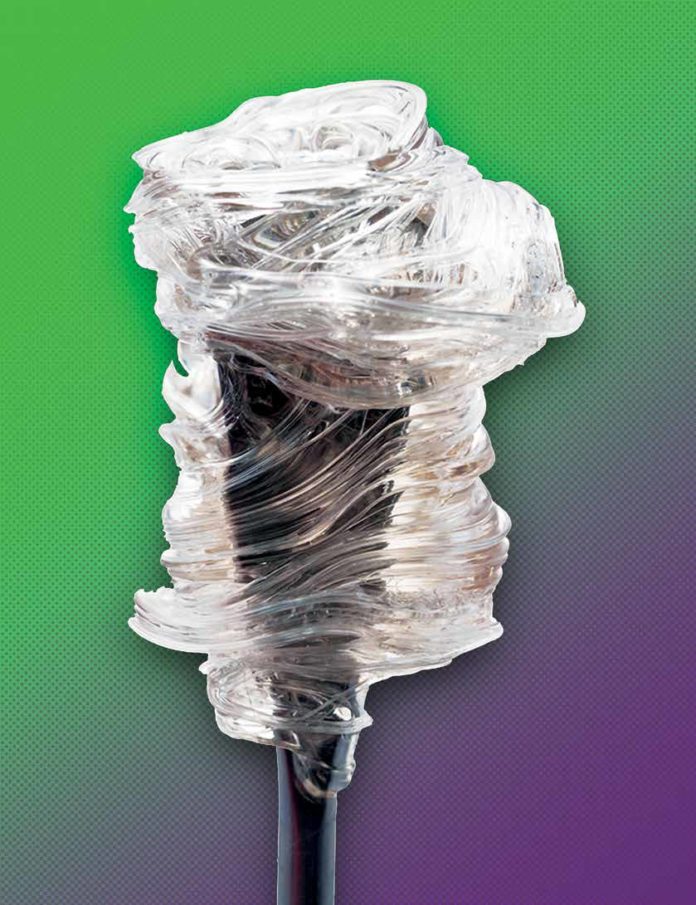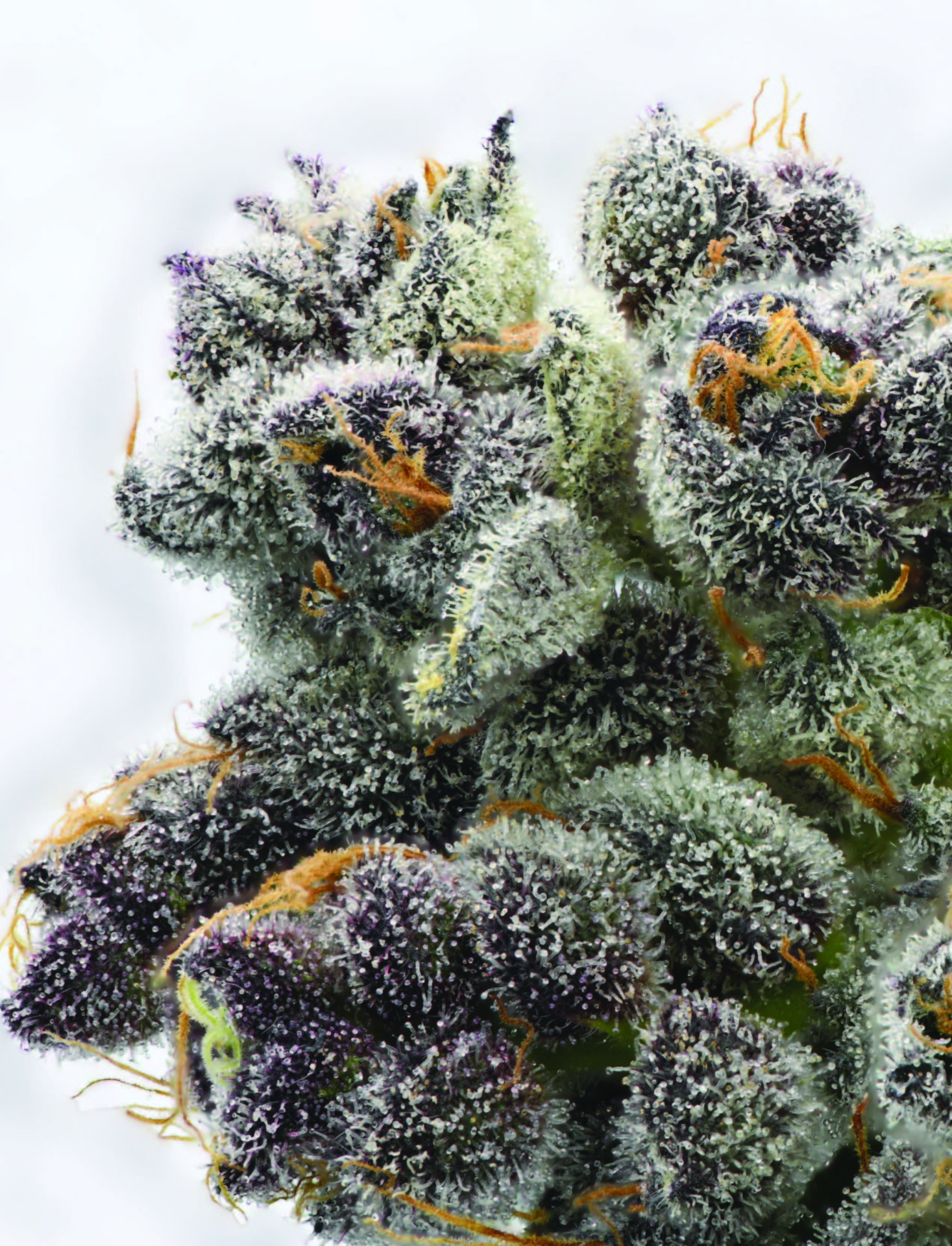
The cannabis plant is essentially a factory for dozens of different compounds called cannabinoids. The two most popular are also the most abundant: Delta-9-THC and CBD. But the plant also makes many other so-called minor cannabinoids, including CBG, CBN, THCA and, of course, Delta-8-THC. Most cannabis plants produce very small levels of Delta-8, so to get a usable amount takes a lot of processing and refinement. I think it’s been shown that there’s a difference” says Dr. Milli, a primary care physician at Harvard Medical School who specializes in medical cannabis. “People report [Delta-8] as being less anxietyprovoking, less sedating and a little more clear-headed than THC.” Delta-8 has game-changing potential for patients, such as the elderly or children, that are looking for “less confusion and spaciness or stoned-ness or whatever you want to call it.” And he cautions that the alleged benefits of cannabis-based drugs shouldn’t supersede research and evidence. But before the market for Delta-8-THC products can reach anywhere close to the current demand for CBD, entrepreneurs and doctors need to know: “Is it even legal?” Delta-8 has a complicated, hazy legality. There’s no question that Delta-9 is technically illegal: Under U.S. federal law, regular THC is a Schedule I substance, which means the government classifies it as dangerous as heroin and LSD. This law, which was passed in 1970, makes research expensive and difficult — part of why we know so little about Delta-8. But recently the U.S. Drug Enforcement Administration (DEA) updated their list of controlled substances and banned Delta-8 until this August. A lot of the confusion stems from where Delta-8 is sourced. If it comes from Cannabis sativa, it’s still illegal. If it comes from hemp — a form of the same plant, bred with non intoxicating levels of THC — then it’s legal thanks to the 2018 federal Farm Bill. Or, so a lot of cannabis companies assumed. The entire industry moved forward from the 2018 law as if hemp were legal. The laws clearly define all hemp-derived cannabinoids and products with a Delta-9-THC level below 0.3 percent as legal. But the shifting, ambiguous laws have some in the industry concerned about a DEA crackdown on hemp farms. The convoluted web of regulations created since hemp was legalized has forced the USDA to a reopen period to address some of the changes and the impact they have on the industry. In the meantime, it’s not clear what the future holds for Delta-8. Consumers seem eager to try new, obscure cannabinoids, but whether they can legally purchase them outside of states where recreational cannabis is legal, or whether scientists can legally study them, is still being smoked out. This time, its not CBD. It’s a derivative of THC itself, called Delta-8-THC. The hype seems to hinge on the idea that Delta-8-THC delivers per the cannabis platform and not hemp. The molecular difference between Delta-8-THC and its popular cousin is small, but it’s enough to change how it binds to the brain receptors. Dr. Milli estimates it is about “two-thirds” as potent as Delta- 9-THC. THC binds tightly to which are found primarily in the brain, but are also present throughout the body. Those receptors are part of the endocannabinoid system – a vast network of receptors and chemicals that influence biochemistry, homeostasis, and a variety of experiences including, mood, pain sensation, or stress. THC’s chemical structure connects naturally with receptors allowing the brain to
send messages through the endocannabinoid system. The structure of Delta-8-THC is slightly different, and it doesn’t bind as well, explains Dr Milli. “It’s for this reason that people think it’s less psychotropic – it has less of the effect of a high.” There isn’t enough research directly on Delta-8-THC. Some of what we know about it comes from a 1990’s study on children undergoing chemotherapy; it showed that the derivative prevented the vomiting associated with the chemo. Side-effects like irritability and “slight euphoria” were only seen in two children. Though the authors of that early study noted that in children “euphoria” is hard to quantify. Anti-nausea application is one potential avenue for exploration Dr. Milli mentions. He adds that, based on patient experiences, this derivative “seems to be more energetic and less sedating,” it also has potential as an appetite suppressant. Still, all this work is very speculative and many of the claims out there right now are not based on solid scientific ground. When scientists develop drugs, they aim to pinpoint therapeutic window (or therapeutic index), a dosage that’s high enough to produce positive effects, and too low to produce unwanted side effects. Delta-9-THC has a narrow therapeutic window. Because Delta-8-THC doesn’t bind as well to the CB1 receptors, she suggests it might have a larger therapeutic window than Delta-9-THC. In that case, you would need to encounter much more of it to experience unpleasant side effects, which may be why some people don’t report the same experiences they do with Delta-9-THC. It could also mean that dosages required to experience the potential upsides of the compound would differ from those seen in traditional THC, should they be confirmed. For now, it’s too early to confirm that Delta-8-THC can deliver on the promises that the cannabis industry may be hoping for. Dr Milli warns that Delta-8 is likely not going to be a cureall, a reputation that CBD has acquired as hype has outpaced research. Cannabis’ legality on a federal level and the new DEA proposal that derivatives of tetrahydrocannabinol be classified as Schedule 1 controlled substances adds to the uncertainty – but that ruling isn’t finalized yet. Unlike delta-9 THC, delta-8 itself currently has no federal scheduling. However, it is possible to fail a drug test from use of Delta-8, as those tests do not test for specific types of THC but rather for THC metabolites. THC metabolites are the result of the body processing any form of THC. Always do your own research and vetting on the legal standing of any cannabinoid in your area before consuming or purchasing a product. Laws are varied and complex, and we at Kurple Magazine are not here to give legal advice. However, we do advocate for the right to research viable medicines.


















